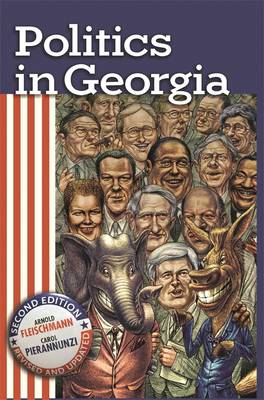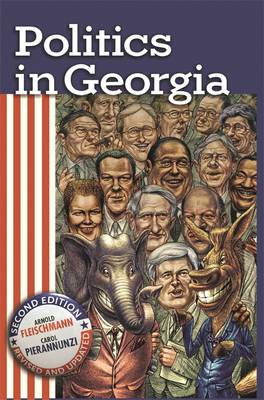
- Retrait gratuit dans votre magasin Club
- 7.000.000 titres dans notre catalogue
- Payer en toute sécurité
- Toujours un magasin près de chez vous
- Retrait gratuit dans votre magasin Club
- 7.000.000 titres dans notre catalogue
- Payer en toute sécurité
- Toujours un magasin près de chez vous
100,95 €
+ 201 points
Format
Description
In keeping with the state's major demographic upheavals of recent decades, Georgia politics is an interesting--and sometimes volatile--mix of tradition and change. In contrast to the state's rural past, most Georgians now live in cities or suburbs, and more than 40 percent of the population was born outside the state. However, religion and race remain issues that politicians ignore at great peril, and the state still fares poorly in measures of poverty, education, and voter turnout.
Politics in Georgia uses a comparative framework to examine four major topics: the foundations of contemporary Georgia politics, political participation, major political institutions, and selected public policies. Material new to this edition includes: analysis of 2006 state elections coverage of trends and events since the book first appeared in 1997 an examination of the Republican Party's rise in Georgia an entirely new chapter on public opinion significantly expanded treatment of public policy on such issues as the environment, social welfare, education, transportation, economic development, and public safety discussions of major federal court cases that deal with Georgia-and that have set important precedents for the nation Throughout, Politics in Georgia compares the state with the federal government and the other forty-nine states, as well as with earlier periods of Georgia's political development. The result is a thorough, up-to-date resource on Georgia's dynamic political system.Spécifications
Parties prenantes
- Auteur(s) :
- Editeur:
Contenu
- Nombre de pages :
- 376
- Langue:
- Anglais
Caractéristiques
- EAN:
- 9780820329062
- Date de parution :
- 01-09-07
- Format:
- Livre relié
- Format numérique:
- Genaaid
- Dimensions :
- 162 mm x 243 mm
- Poids :
- 693 g







